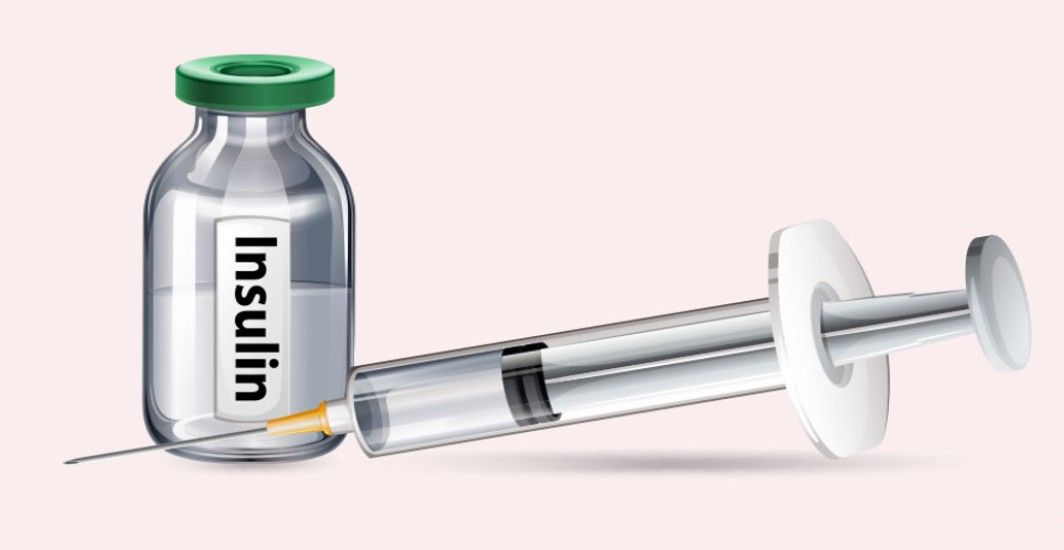Diabetes Management
The Impact Of Dehydration On Diabetes And How Can You Prevent It
2 min read
By Apollo 24|7, Published on - 10 October 2024
Share this article
0
0 like
.jpg?tr=q-80)
Living with diabetes involves careful management of blood sugar levels. However, one often overlooked factor that can significantly impact diabetes control is dehydration. Here, we explore how dehydration affects diabetes and provide practical tips to prevent it.
Understanding Dehydration's Effect on Diabetes
- Rise in Blood Sugar Levels: When your body lacks enough water, the blood becomes more concentrated with glucose, causing a surge in blood sugar levels. This can complicate diabetes management and may lead to lasting damage to vital organs like kidneys and heart.
- Increased Frequency of Urination: Higher blood sugar levels cause the kidneys to work overtime, leading to frequent urination and further fluid loss, intensifying the dehydration.
- Recognizing Signs of Dehydration: Symptoms spanning from simple thirst and dry mouth to fatigue, dizziness, and dark urine may indicate dehydration. In severe cases, confusion, low blood pressure, and a rapid heart rate may occur. Early recognition of these signs is essential for effective management.
- Potential Complications: Persistent dehydration can lead to serious health issues such as kidney failure and may enhance other diabetes-related complications like heart disease.
Practical Tips to Ward Off Dehydration
- Maintain Adequate Hydration: Aim for about between 2.1–2.7 litres of fluids per day. Water is an optimal choice as it hydrates without adding sugar.
- Monitor Fluid Loss: Take note of circumstances that may increase fluid loss like hot weather, physical exercise or illness. Adjust your fluid intake during these times accordingly.
- Limit Diuretic Substances: Curtail the intake of caffeinated drinks and alcohol, as these can further contribute to dehydration.
- Incorporate Hydrating Foods: Consuming fruits and veggies rich in water content like cucumbers, watermelons, and oranges not only hydrates but also nourishes the body with essential nutrients.
- Recognise Early Signs: Pay heed to early signs of dehydration like thirst and dry mouth. Take corrective action by drinking fluids immediately.
- Plan: Carry a water bottle while going out or exercising. Set reminders to drink throughout the day.
Implementing these strategies can help individuals with diabetes to effectively manage their hydration levels and curb the risk associated with dehydration. Alongside this, consider enrolling in the Apollo Super 6 programme, an initiative designed by Apollo doctors in India to help manage type 2 diabetes through lifestyle modifications and personalised support.
Diabetes Management
Consult Top Diabetologists
View AllLeave Comment
Recommended for you

Diabetes Management
Can Diabetes Be Diagnosed Without Symptoms?
Asymptomatic diabetes demands early detection. Screening tests like Fasting Blood Glucose, Oral Glucose Tolerance, and HbA1c are crucial. Early diagnosis enables prompt treatment, lifestyle adjustments, and complication prevention. Regular check-ups are vital for effective diabetes management.
.jpg?tr=q-80)
Diabetes Management
Can Stress And Lack Of Sleep Cause Diabetes?
Did you know that persistent stress and chronic sleep deprivation can contribute to the development of type 2 diabetes? Maintaining a healthy sleep schedule and managing stress effectively is crucial in diabetes prevention and management. Start your journey towards better health today by understanding more about these risk factors and how to mitigate them. Enrol in Apollo's Super 6 programme to help you improve these conditions and, as a result, manage your diabetes more effectively.

Diabetes Management
Understanding the Risks of Diabetic Shock and Insulin Reaction
Understanding diabetic shock and insulin reactions is crucial for individuals managing diabetes. By recognising symptoms early and responding swiftly with appropriate treatment measures, severe hypoglycaemia can be managed effectively. Prevention strategies like monitoring blood sugar levels regularly and adjusting food intake or insulin doses based on lifestyle changes are key.
Subscribe
Sign up for our free Health Library Daily Newsletter
Get doctor-approved health tips, news, and more.
Visual Stories

8 Fruits That are Incredibly Healthy for Diabetes
Tap to continue exploring
Recommended for you

Diabetes Management
Can Diabetes Be Diagnosed Without Symptoms?
Asymptomatic diabetes demands early detection. Screening tests like Fasting Blood Glucose, Oral Glucose Tolerance, and HbA1c are crucial. Early diagnosis enables prompt treatment, lifestyle adjustments, and complication prevention. Regular check-ups are vital for effective diabetes management.
.jpg?tr=q-80)
Diabetes Management
Can Stress And Lack Of Sleep Cause Diabetes?
Did you know that persistent stress and chronic sleep deprivation can contribute to the development of type 2 diabetes? Maintaining a healthy sleep schedule and managing stress effectively is crucial in diabetes prevention and management. Start your journey towards better health today by understanding more about these risk factors and how to mitigate them. Enrol in Apollo's Super 6 programme to help you improve these conditions and, as a result, manage your diabetes more effectively.

Diabetes Management
Understanding the Risks of Diabetic Shock and Insulin Reaction
Understanding diabetic shock and insulin reactions is crucial for individuals managing diabetes. By recognising symptoms early and responding swiftly with appropriate treatment measures, severe hypoglycaemia can be managed effectively. Prevention strategies like monitoring blood sugar levels regularly and adjusting food intake or insulin doses based on lifestyle changes are key.


